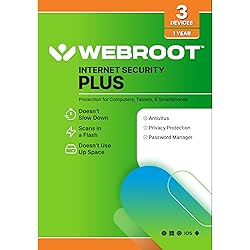VPN and Email Privacy: Protect Your Messages
VPN and email privacy are two critical aspects of modern digital security. As cybercrime rises, ensuring the confidentiality of your online communications has never been more urgent. Whether you’re a business professional sending sensitive documents or an average user sharing personal information, understanding how to protect your messages should be a top priority.
Why Email Privacy Matters in Today’s Digital World
Despite the growth of chat apps and instant messaging platforms, email remains a cornerstone of both personal and professional communication. Unfortunately, it’s also a primary target for cyber threats:
– Phishing: Cybercriminals regularly send deceptive emails to trick users into revealing personal information or clicking on malicious links.
– Interception: Emails sent through unsecured networks can be intercepted and read by unauthorized parties.
– Data Breaches: Weak email privacy measures can lead to massive data leaks, exposing sensitive information to the public.
Considering these risks, taking steps to safeguard your email privacy is essential for individuals and organizations alike.
VPN and Email Privacy: How Virtual Private Networks Enhance Security
A Virtual Private Network (VPN) establishes a secure, encrypted connection between your device and the internet. When you access your email through a VPN, your data is shielded from eavesdroppers, hackers, and even your Internet Service Provider (ISP).
How a VPN Works with Email Services
– Encryption: VPNs encrypt all data leaving your device, making it unreadable to anyone who might intercept it.
– IP Masking: A VPN hides your real IP address, making it harder for attackers to track your online activities, including your email interactions.
– Wi-Fi Security: Public Wi-Fi networks are notoriously insecure. Checking your email on a café or airport hotspot without a VPN leaves your messages vulnerable to interception. With a VPN, however, your communications remain private even on unsecured networks.
Best Practices for Maximizing Email Privacy
Beyond using a VPN, several other strategies can bolster your email privacy:
Enable Two-Factor Authentication (2FA)
Adding a second layer of security, such as a code sent via SMS or an authentication app, significantly reduces the risk of unauthorized email access.
Use Strong, Unique Passwords
Avoid reusing passwords for your email accounts. Complex, unique passwords are harder for hackers to crack.
Choose Encrypted Email Providers
Consider email services that offer end-to-end encryption, ensuring only you and your recipient can read the contents of your messages.
Beware of Phishing Scams
Never click links or download attachments from unknown senders. Phishing remains one of the most effective tools for stealing email credentials.
The Limitations of VPNs in Email Privacy
While VPNs offer robust protection for data in transit, they are not a complete solution for email privacy:
– Emails at Rest: Once an email arrives in your inbox, its security depends on your email provider’s protections.
– Metadata Exposure: VPNs don’t prevent your email provider from collecting data about your communications, such as sender, recipient, and subject lines.
Thus, VPNs should be used in combination with secure email practices and services.
Combining Efforts: A Modern Approach to Message Protection
A multilayered security plan is the best way to protect your email messages in today’s cyber threat landscape. This includes:
– Always connecting to email services over a VPN, especially on public Wi-Fi.
– Enabling all available security features on your email accounts.
– Choosing email providers that align with your privacy needs and values.
– Educating yourself about emerging email threats and best practices.
Conclusion
In an age where cyber threats are continually evolving, taking steps to secure your communications is not optional—it’s essential. VPN and email privacy go hand in hand to create a safer digital environment for your messages and personal data. By leveraging the power of VPN technology and adopting email security best practices, you can communicate with confidence, knowing your messages are shielded from prying eyes.
Stay informed, stay protected, and make online privacy a part of your daily routine.


